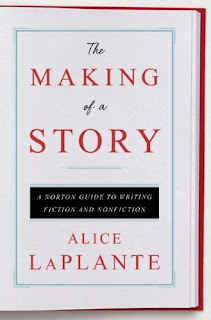Whether you write novels,
memoir or short stories, one thing that can help you improve your writing is to
learn how to read like a writer.
After many years of
writing, teaching and developmental editing, I no longer read for pleasure.
Instead I read like a writer, which I find more fun than the old way I used to
read.
So what does it mean to
read like a writer? This is when you read in order to critique. And when we say
critique, we aren’t talking about whether you’re liking something or not. It’s
all about analyzing and dissecting what’s on the page. The goal is to unlock
the secret of what the writer is doing successfully and turn the book you’re
reading into a sort of textbook of creative writing. Analyzing stories in this
way is a skill that you can develop if you’re motivated. And the next step
after recognizing these inner workings in the writing is to try and apply them
to your own work.
This isn’t stealing or
copying from a writer—this is learning.
Reading like a writer is
sometimes referred to as a close read. You’re mainly focusing on answering the
question, “What is the writer doing here?” You’re digging deep and noticing all
kinds of things, including:
~ How much time the story
covers
~ How the timeline is
employed
~ How many chapters there
are
~ How chapters begin
~ How chapters end
~ Style
~ Diction
~ Where scenes are taking
place
~ How the story begins
~ How the story ends
~ Paragraph breaks
~ Techniques used
~ How characters are
depicted
~ How exposition is
handled
~ How suspense is employed
~ Pacing
~ Point of View
~ Parallel stories and
subplots
and much more.
I also do this when I’m
watching a TV show or movie. If I’m losing interest, I try to figure out why.
Usually it means there’s some kind of inherent weakness in the story or in the
protagonist’s motivation, which causes a disconnect. It’s useful to try and
think of how you’d fix a film to make it better or perhaps marvel at how well
it’s working on all levels. This actually enhances the pleasure and
entertainment factor for me. And the fact that I’m usually learning something
new or getting validation about something I already know is a bonus.
So try it the next time
you read a book or watch a film. In future blogs posts I’ll give specific
examples of what to look for with passages from novels as examples.


